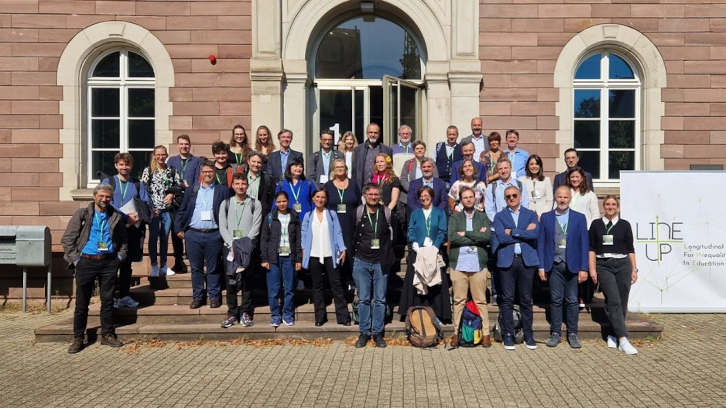Rethinking Educational Inequalities from a Longitudinal Perspective

LINEup is a research project that involves institutions and universities from several European countries, including UAB and UPF. This initiative aims to analyze educational inequalities throughout the schooling process and incorporates innovative methodologies and perspectives in the research of the sociology of education.
From this year until the year 2027, the ‘Longitudinal data for Inequalities in Education (LINEup)’ research project funded by the European Horizon Programme will be carried out. This project involves 14 institutions and research groups from universities in Italy, Germany, France, Greece, Portugal and Spain, and is led by the Fondazione per la Scuola della Compagnia di San Paolo (Turin, Italy).
The aim of the project is to analyze how educational inequalities evolve from 6 to 18 years of age, i.e. how the cognitive competences of students evolve throughout their schooling process, and the relationship between this evolution and social, regional, and educational inequalities.
This topic has a long tradition in the sociology of education, but the LINEup project provides two innovative approaches. The first is the longitudinal perspective, that is, being able to follow the same group over a relatively long period of time. This will be done by collecting secondary data that already exists in the different countries in order to carry out a process of harmonization and comparability. This is a very complex challenge, given that the origins and formats of the databases are diverse.
The second innovative element is the combination of quantitative and qualitative methodologies. It is planned to carry out 9 case studies in each country, with the selection of 9 schools from different socio-economic backgrounds and with different outcomes, and to carry out interviews with management teams and discussion groups with students, families, and teachers, which will help to give an understanding of the generation and reproduction of educational inequalities.
The UPF and the UAB are participating as research partners from Spain. The UAB, through the Education and Work Research Group of the Department of Sociology, will be responsible for carrying out the qualitative fieldwork, i.e. selecting the 9 schools, designing the data collection tools, carrying out the interviews and discussion groups, and generating the results reports that will be compared with the partners from the other countries participating in the project. It will also contribute to the quantitative part from its experience of managing and analyzing the most complete longitudinal database we have in Catalonia, the RALC (Registre d'Alumnat de Catalunya).
Finally, another innovative element is the participation of the educational assessment agencies of the countries that are part of the project, as an Advisory Board that serves to provide quality control of the research process and also to formulate proposals for political action to reduce educational inequalities. This transfer to the educational community and policymakers is firmly established in the very design of the project.
Grup de Recerca Educació i Treball, Department of Sociology
Universitat Autònoma de Barcelona
References
Grup de Recerca Educació i Treball (GRET) https://gret.uab.cat/
Longitudinal data for INequalities in Education (LINEup) https://www.lineup-project.eu/

